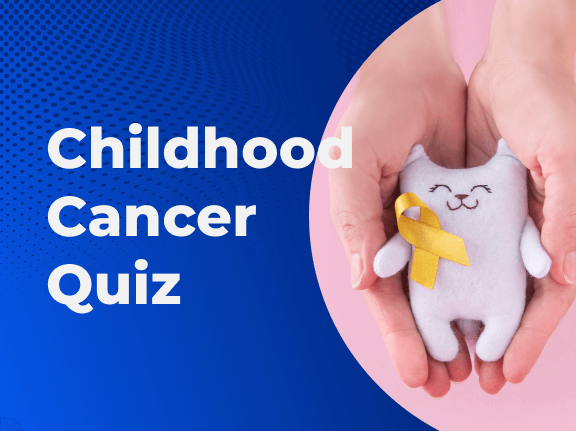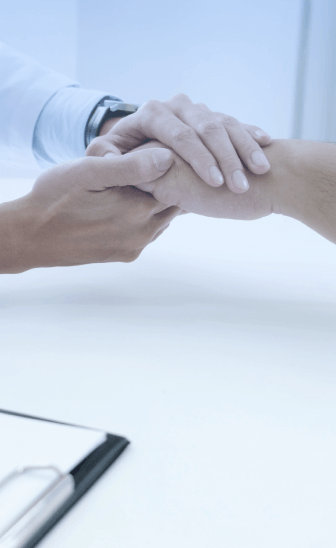
Childhood Cancer Quiz
This online assessment takes only 2 minutes. It will help you find the right clinical trials for you.

Fiona Evans
We ask this to determine which clinical trials you may be eligible for.
If you need to contact us right away?
Call +1 844 627 7246Your personal data is fully confidential and 100% secure
The Childhood Cancer Quiz explains that when compared with cancer in adults, childhood cancer is uncommon, but there are a variety of very rare types which account for around 20-25% of all childhood cancers. Most behave like other childhood cancers, growing and spreading to different parts of the body. Other symptoms are also possible, depending on the specific cancer type. The most common type of cancer in adolescents are leukemia (30%), brain and spinal tumors (26%), and lymphoma (11%).
Cancers that start in the bones (major bone cancers) happen most frequently in older children and teenagers, but they can develop in individuals at any age. These cancers most frequently begin in lymph nodes or in different lymph tissues, like the tonsils or thymus. Symptoms also depend upon the place the cancer begins and can include weight loss, fever, sweats, tiredness (fatigue), and lumps (swollen lymph nodes) beneath the pores and skin in the neck, armpit, or groin.
What Causes Childhood Cancer?
Medical advances in the past 40 years have significantly improved the survival rates for kids diagnosed with most kinds of cancer. For some cancers, the medical advances have been extraordinary. Overall, the survival rate of kids with most cancers is round 83%. Some children inherit genetic alterations (mutations) from a mother or father that increase their danger of certain types of cancer. Some of those mutations are linked only with an elevated risk of cancer, whereas others can cause syndromes that additionally effect other health or developmental issues.
In adults, way of life-related threat components, such as smoking, being overweight, not getting sufficient exercise, consuming an unhealthy diet, and drinking alcohol play a major function in lots of types of most cancers. But lifestyle components normally take a few years to influence a cancer’s threat, and they are not thought to play much of a role in childhood cancers. Evidence for prevalence of ache in newly diagnosed cancer is low. More than one third of people with most cancers pain describe the ache as painful or severe. For assistance with childhood cancer, schedule a consultation with one of our cancer care experts to find a clinical trial or learn about personalized treatment plans.
Almost Done!
Please complete the required fields and we will send results to your email.
You have completed the quiz.
0 out 0 answers are correct

We ask this to determine which clinical trials you may be eligible for.
Fiona Evans Massive Bio Patient Relations CoordinatorIf you need to contact us right away?
Call +1 844 627 7246Your personal data is fully confidential and 100% secure

© 2024 Massive Bio. All rights reserved




